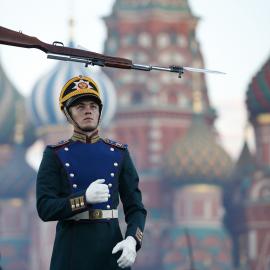To the Editor:
In his review of Failed Crusade: America and the Tragedy of Post-Communist Russia ("Blaming Russia First," November/December 2000), Daniel Treisman caricatures rather than confronts my arguments. For instance, nowhere in the book do I maintain that "the Soviet Union in late 1991 was a well-functioning, reforming state" or that Harvard economists "brainwashed not just the Russian leadership but much of the country's population." Perhaps Treisman exaggerates and then protests my criticism of Harvard's economic shock-therapists because one of them, Andrei Shleifer, is the co-author of his book Without a Map: Political Tactics and Economic Reform in Russia.
Treisman dismisses my larger political and historical interpretations as "cliches." But he specifically cites only one example, involving what Russians, not I, have for centuries called the "accursed," wrathful question: "Who is to blame?" In some places Treisman writes as though the 66-page third part of my book, which extensively sets out general and specific policy proposals for the United States, does not exist.
Perhaps alone among American commentators, I have long emphasized the Boris Yeltsin regime's profound fear, beginning in the mid-1990s, of one day being held responsible for the oligarchical looting and mass impoverishment of Russia. For evidence of this fear, Treisman needs only to read Yeltsin's recent memoir, Midnight Diaries, which confirms how Vladimir Putin, a career officer in the KGB (the former Soviet agency for intelligence and internal security), was made Kremlin leader in order to guarantee the soon-to-retire president and his family full immunity from prosecution.
STEPHEN F. COHEN
Professor of Russian Studies and History, New York University
